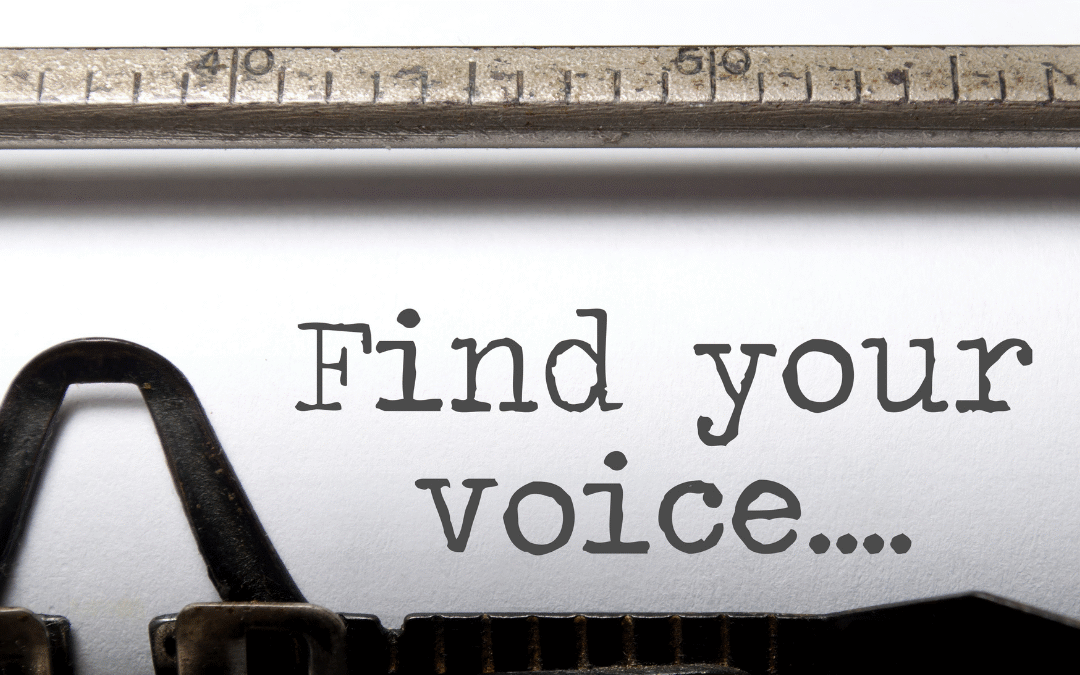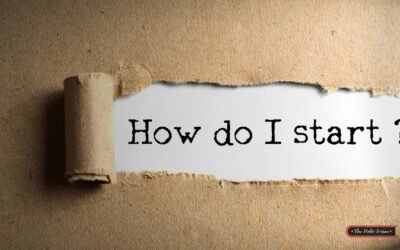Most aspiring authors feel overwhelmed by the idea of getting their book published, but I’m here to break it down for you. In this guide, I will share the step-by-step process I took to successfully navigate the publishing world and get my work into the hands of a major publisher. From crafting a standout manuscript to understanding the intricacies of the submission process, I will equip you with the vital tools and insights to elevate your writing and increase your chances of achieving your publishing dreams.
Key Takeaways:
- Understand the Publishing Process: Familiarize yourself with the various stages of publishing, from manuscript submission to marketing, to navigate the industry effectively.
- Craft a Compelling Query Letter: Your query letter is crucial for capturing an agent’s attention; make sure to succinctly outline your book’s unique selling points and your background.
- Network with Industry Professionals: Building relationships with agents, editors, and other authors can significantly enhance your chances of getting published by a major publisher.
Understanding the Publishing Landscape
While navigating the book publishing industry can feel daunting, it’s necessary to grasp the fundamentals of the publishing landscape. The landscape is vast and varied, with different avenues for bringing your book to life. Recognizing the key players, such as major trade publishers, independent publishers, and self-publishing platforms, will empower you to make informed decisions. Each path offers unique opportunities and challenges that can significantly impact your book’s success.
Major Publishers vs. Independent Publishers
Some authors find themselves torn between major publishers and independent publishers. Major publishers typically offer broader distribution, robust marketing resources, and established credibility. However, they often have stricter submission guidelines and longer timelines. In contrast, independent publishers may provide more personalized attention and creative freedom but can lack the same level of resources and reach. Ultimately, your choice will depend on your goals and expectations for your book.
The Role of Literary Agents
Assuming you plan to approach major publishers, understanding the role of literary agents is crucial. Literary agents act as intermediaries between authors and publishers, guiding you through the complex submission process. They possess industry knowledge and connections that can enhance your chances of securing a publishing deal.
Understanding the role of literary agents is vital in your publishing journey. They not only help you polish your manuscript but also negotiate contracts on your behalf, thereby enhancing your professional standing in a competitive industry. However, it’s important to choose an agent who is reputable, as there are many who prey on inexperienced authors. Additionally, a good literary agent will provide guidance on market trends and help position your book for success. This partnership can be invaluable in navigating the intricacies of the publishing world, ensuring that your work reaches its full potential.
Crafting Your Manuscript
Some writers underestimate the significance of crafting a high-quality manuscript. Your manuscript is the foundation of your book, and it must resonate with readers and publishers alike. Taking the time to refine your storytelling, develop engaging characters, and maintain a consistent tone is imperative for capturing interest and demonstrating your skills as a writer.
Writing Tips for a Compelling Book
Some of the most effective tips for creating an engaging manuscript include:
- Develop relatable and dynamic characters.
- Create a compelling plot structure.
- Utilize rich and descriptive language.
- Maintain a consistent voice throughout.
The right techniques can elevate your writing and engage agents and publishers.
The Importance of Editing
Little do writers realize that editing can be the difference between rejection and acceptance by a major publisher. It is crucial to revisit your manuscript with a critical eye after the first draft is complete. This process eliminates unnecessary words, enhances clarity, and ensures your narrative flows seamlessly. Editing is not just a final step; it’s a vital part of the writing journey that can reveal the strengths and weaknesses of your work.
This stage allows you to identify any plot holes, inconsistencies, or grammatical errors that can detract from your reader’s experience. A thorough edit can significantly improve your manuscript’s overall quality, making it more appealing to agents and editors. Investing time in the editing process not only refines your work but also helps you develop as a writer by giving you a clearer understanding of your writing style and areas for improvement. Overall, a well-edited manuscript has a far greater chance of making a positive impression.
Researching Potential Publishers
Despite the excitement of finalizing your manuscript, venturing into the world of publishing can be daunting. It’s necessary to identify publishers who align with your book’s genre and target audience. A thorough understanding of the publishing landscape will equip you to make informed decisions that increase your chances of securing a deal with a major publisher.
Factors to Consider When Choosing Publishers
You should consider several important factors when evaluating potential publishers:
- Genre Specialty – Does the publisher have a history in your book’s genre?
- Reputation – What do authors say about their experiences with the publisher?
- Distribution – How extensive are their distribution channels?
- Advances and Royalties – What are their typical financial offerings?
- Marketing Support – What kind of marketing resources do they provide?
Recognizing the significance of these elements will empower you in your publishing journey.
How to Create a Target List
The process of creating a target list of publishers is necessary for maximizing your book’s potential. Begin by compiling a list of publishers that specialize in your book’s genre and have published similar titles. It’s beneficial to reference industry resources, attend author events, and engage in online communities. Once you have a list, prioritize publishers based on their reputation, submission guidelines, and the authors they represent. This will help you focus your efforts on the most promising opportunities.
Choosing the right publishers for your target list requires careful consideration. Start with a broad research approach and narrow your options by emphasizing those who have a strong track record with authors in your genre. It’s crucial to pay attention to submission guidelines and publishing history, as they will influence not only the chances of acceptance but also your potential success as an author. A properly curated list can significantly affect your chances of being noticed by key industry players. Recall, publishers with a solid reputation and consistent marketing support can be necessary in bringing your book to the audience it deserves.
Writing a Query Letter
Not all authors understand the significance of a well-crafted query letter, yet it is often your first point of contact with a potential publisher. This crucial document serves as your introduction and sets the tone for your submission, providing a sneak peek into both your writing style and the concept of your book. A strong query letter can open doors while a weak one can lead to immediate rejection. Therefore, learning how to write an effective letter is imperative for your publishing journey.
How to Write an Effective Query Letter
Clearly, the key to an effective query letter lies in its structure and content. Begin with a personalized salutation to the agent or editor and provide a concise introduction to your book, including its genre, word count, and a captivating hook. Summarize your plot succinctly, highlighting what makes your story unique. Finally, don’t forget to include your author bio and any relevant credentials to bolster your credibility.
Common Mistakes to Avoid
Writing a query letter can be tricky, and there are several common pitfalls that can undermine your efforts. One frequent mistake is sending out generic letters that lack personalization—this can be a major turn-off for agents who appreciate a tailored approach. Additionally, including unnecessary details, such as lengthy biographies or overly complex plots, can dilute the impact of your letter.
Understanding the common mistakes to avoid in your query letter is imperative for enhancing your chances of success. Failing to personalize each letter shows a lack of effort, while lengthy explanations can distract from your book’s essence. Furthermore, I suggest steering clear of overly aggressive language or desperate pleas for representation, as these can come off as unprofessional. Instead, keep your tone confident and engaging, allowing your writing style to shine through. Each detail you present should work in your favor, so focus on clarity and impact to make a lasting impression.
Submitting Your Manuscript
Your journey to getting published begins with submitting your manuscript. After diligently crafting your work, it’s crucial to present it professionally. Most major publishers have specific submission requirements, so taking the time to tailor your manuscript and cover letter to each publisher is imperative. A polished submission reflects your commitment and helps set you apart in a competitive landscape.
Tips for a Successful Submission
To enhance your chances of success, consider these tips:
- Research your target publisher thoroughly.
- Format your manuscript according to their guidelines.
- Personalize your cover letter to each publisher.
- Proofread for grammar and style errors.
Perceiving the submission process as an opportunity to connect with the publisher will set the right tone.
Understanding Submission Guidelines
An imperative aspect of submitting your manuscript is understanding the submission guidelines. Each publisher has its own set of rules regarding formatting, length, and the materials to include with your submission. Reading these guidelines carefully will ensure that you do not inadvertently disqualify your work from consideration.
The guidelines often cover specific formatting styles, such as font type and size, as well as word count limits and required elements like synopsis or author bio. Ignoring these details could lead to outright rejection, so it’s important not to underestimate their significance. Failure to adhere to guidelines can frustrate editors and hinder your chances of getting published. Following the rules can greatly increase your opportunity for a positive response, guiding you closer to your publishing goal.
Navigating the Publishing Contract
Keep in mind that your publishing contract is a critical document that outlines the terms of your relationship with a publisher. Understanding the nuances of a contract can be daunting, but it’s important. I recommend reviewing each section closely and seeking legal advice when necessary to ensure that your rights as an author are protected and that you grasp all implications before signing.
Key Terms to Understand
Some key terms you’ll encounter in a publishing contract include royalty rates, advance payments, territory rights, and termination clauses. Understanding these terms is important for ensuring that you know how much you stand to earn, where your book will be published, and under what circumstances the agreement can be dissolved.
How-to Negotiate Your Deal
Navigating the negotiation process can feel intimidating, but it’s your opportunity to advocate for your best interests. Approach negotiations with confidence, as you are a valuable asset to the publisher. Be prepared to discuss royalty percentages, advance amounts, and rights to different formats, such as audiobooks or foreign editions. Prioritize your needs, but also be open to compromise to build a constructive relationship with your publisher.
Negotiate the key elements of your publishing contract firmly, especially regarding royalties and advances. These are your primary earnings from book sales. Be cautious with termination clauses, as they outline how and when you or the publisher can end the contract. Additionally, ensure that any rights you may want to retain are clearly defined, as losing rights to adaptations or translations can limit your future opportunities. Note, the negotiation process is a dialogue, and your aim is to reach an agreement that honors both your aspirations and the publisher’s needs.
Final Words
Presently, as I conclude this guide on how to get your book published by a major publisher, I hope you feel empowered and well-equipped to initiate on this exciting journey. By understanding the publishing landscape, honing your craft, and strategically presenting your work, you can navigate the complexities of the industry. Note, persistence is key, and each step you take today brings you closer to your publishing dream. I encourage you to believe in your story and pursue your publishing goals with confidence and determination.
FAQ
Q: What is the first step in getting my book published by a major publisher?
A: The first step in getting your book published by a major publisher is to ensure that your manuscript is complete, polished, and professionally edited. You should also familiarize yourself with the publishing industry, including understanding different genres and market trends. Once your manuscript is ready, research potential literary agents who represent authors in your genre, as most major publishers prefer to work with agented submissions. Creating a compelling query letter and synopsis of your book will be crucial to capture the attention of these agents.
Q: How important is a literary agent in the publishing process?
A: Having a literary agent is very important when aiming for publication with a major publisher. Agents serve as advocates for authors, helping to negotiate contracts, providing guidance on manuscript development, and using their industry connections to submit your work to the right publishers. An agent can navigate the complex publishing landscape, increasing your chances of getting published, as many major publishers do not accept unsolicited manuscripts directly from authors. Thus, an agent can be a critical asset to your publishing journey.
Q: What should I expect during the submission process to a major publisher?
A: The submission process to a major publisher can vary, but generally involves submitting your manuscript through your literary agent. After submission, be prepared for a waiting period, which can take several weeks to months. During this time, publishers may review your manuscript, conduct a market analysis, and acquire feedback from editorial teams. If a publisher is interested, they will often request revisions or additional materials. If a deal is reached, the contract negotiation will follow. It’s vital to remain patient and resilient, as this process can be lengthy, with multiple revisions and negotiations required along the way.









